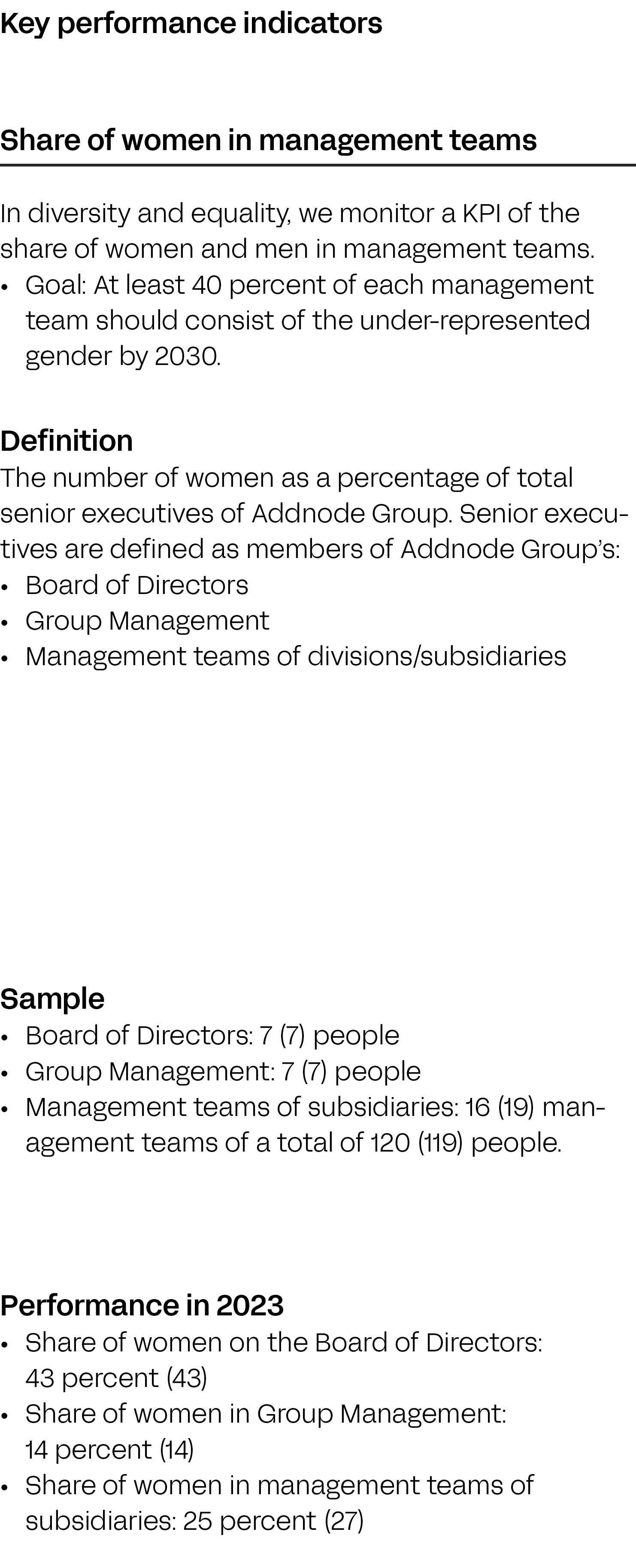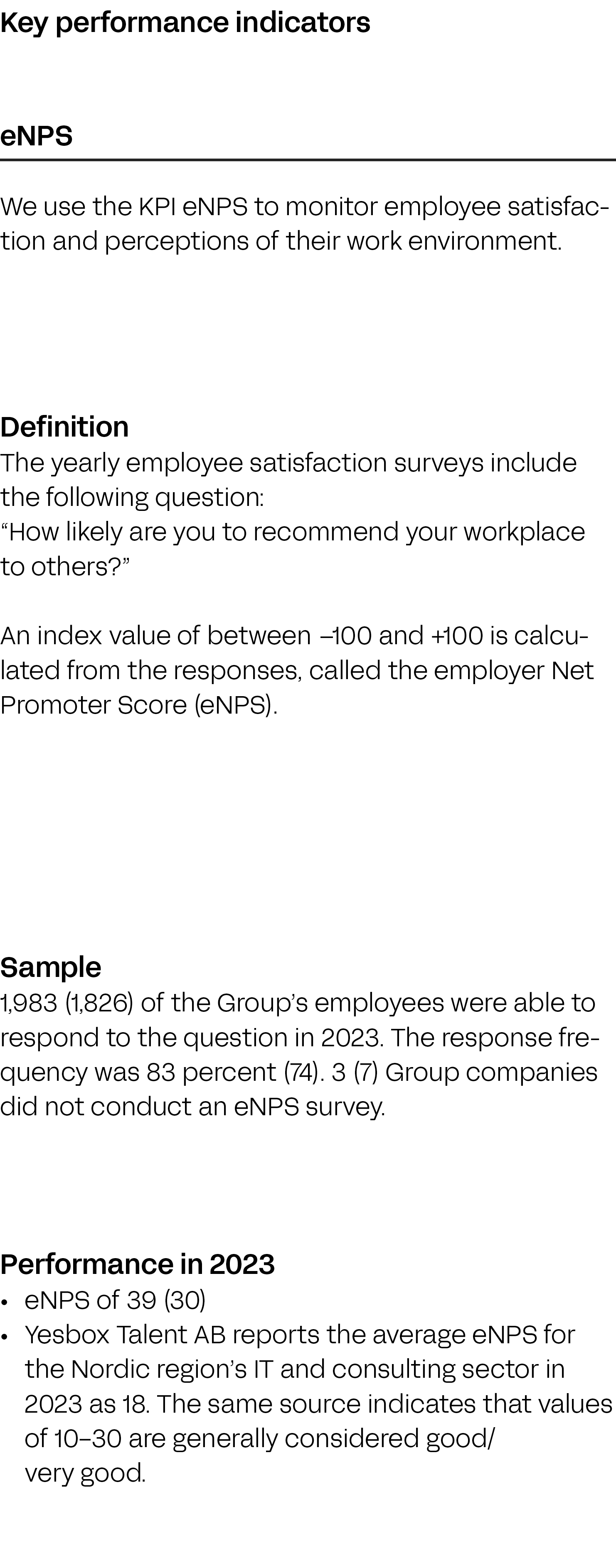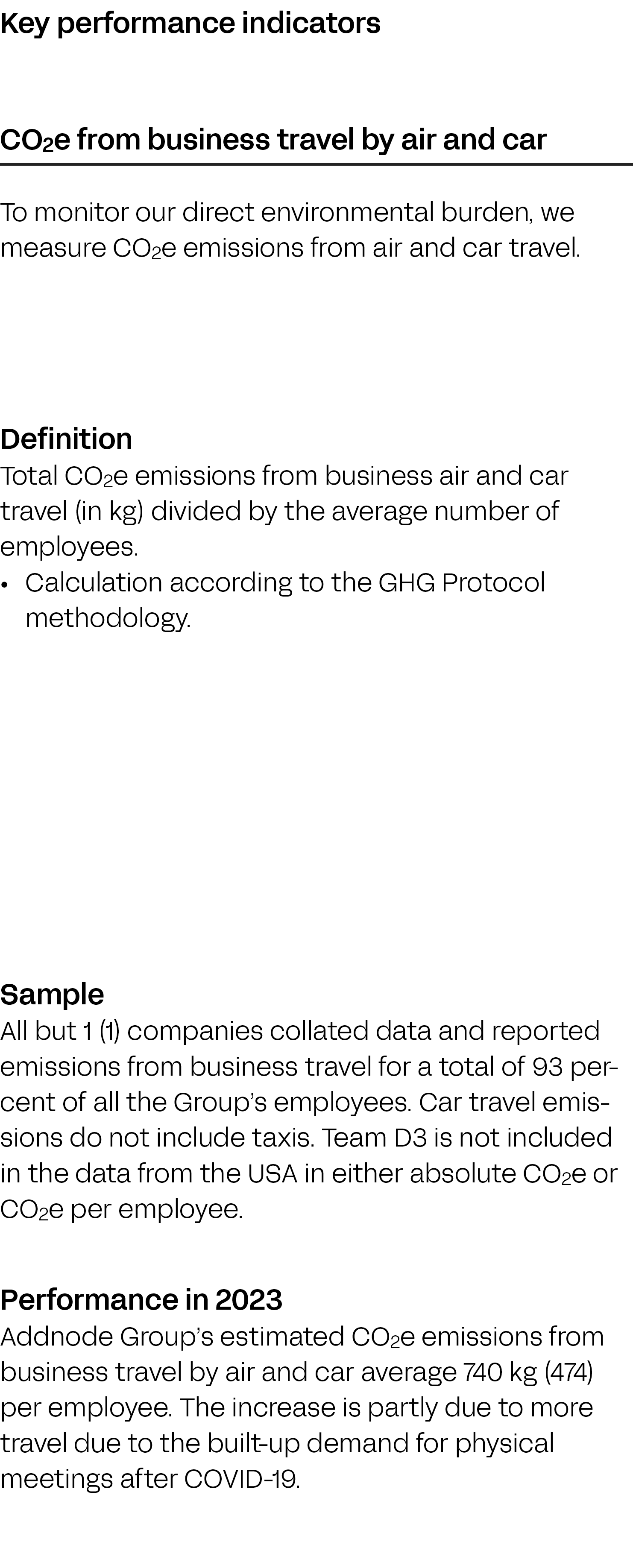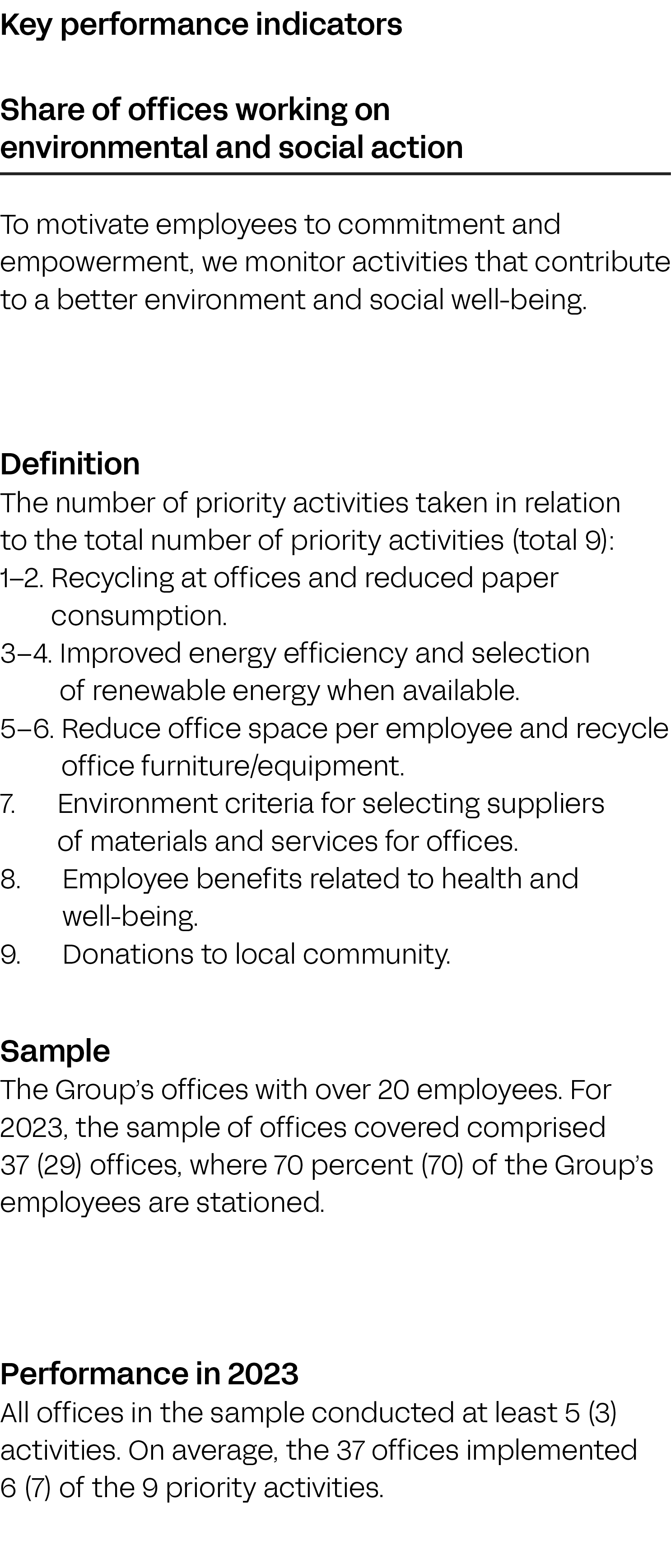Care for people and planet in our own operations
This is Addnode Group’s second focus area. Addnode Group creates sustainable and stimulating workplaces for our employees, while our operations simultaneously make a positive contribution to the environment and the communities around us. We work on many different priorities and activities to achieve this. By offering values-based leadership and decentralised responsibility and authority, we want to attract and retain the most talented people.
We work actively on improving diversity and gender equality at our workplaces, and invest in health, a good working environment and well-being for our employees. We select climate-smart travel alternatives, and our offices work on activities to reduce their negative environmental impact.
Empowered Employees with an Entrepreneurial Spirit
Our employees are the foundation of our competitiveness, with a combination of local presence, industry competence and expert knowledge being key to enabling us to deliver digital solutions and services that satisfy customer needs.
Our decentralised governance model offers our subsidiaries a high degree of freedom and responsibility for their own businesses, while remaining part of a large corporate group. Our ambition is to have proactive and engaged employees who want to make a difference. We strive to empower people to take responsibility and nurture an entrepreneurial spirit. We view the capability to take the initiative as a key to success.
Diversity and gender equality
Addnode Group’s employees have roots in more than 30 countries on several continents. We value, and endeavour to improve, diversity and gender equality in our businesses. We do not tolerate discrimination on grounds of ethnic origin, gender, transgender identity or expression, differences in ability, age, language, religion or other faith, political or other opinion, national or social origin, property, birthplace or other status. Harassment or other inappropriate conduct is not permitted. Each year, all our employees take a web-based training package on our Code of Conduct, where activities include reviewing our values and regulations on these issues.
Balanced gender division is a challenge we share with other companies in our sector. In 2022, women made up 25 per cent (24) of the Group’s average number of employees. To strengthen our efforts in this segment, we use the KPI “Gender division in the Group’s management teams.”
Employee well-being and Good Working Environment
To attract and retain skilled employees, we need to offer stimulating and engaging career opportunities. Our company is working on a broad array of different activities to achieve this, including competitive employment terms, opportunities for further training, health and well-being activities, career planning and appraisal interviews. To follow up on how we are succeeding in creating stimulating and engaging workplaces, our subsidiaries conduct employee satisfaction surveys at least yearly. The outcomes of these surveys are reported under the KPI of employee net promoter score (eNPS), and are reviewed by management teams in each subsidiary, division Boards of Directors, Group Management and the parent company’s Board of Directors.
Direct Consequences for the Environment and Social well-being
We work to limit the negative environmental footprint of our operations, while simultaneously increasing our positive contribution on social issues, and in the environmental area.
The Group’s negative environmental impact is from the offices we work in, the electricity we consume, and the equipment and transport we use. We apply the GHG protocol methodology when monitoring our CO2e emissions from business travel by air and car.
To enable broad engagement for our responsibility for the environment and social issues, we have defined nine priority activities that our companies and their offices are encouraged to work on. Our companies are engaged in everything from extending the useful lives of the equipment we use such as mobile phones, to improving employee health, through e-health activities, for example. Each year, we measure a KPI of how many offices are working on these activities.
In our decentralised organisation, each of our enterprises also draws up local policy documents that are adapted to the needs of their operations with the goal of reducing their negative environmental impact related to travel and procurement, for example.
We are Giving Back to Society
We are very sad to witness the Russian invasion of the Ukraine. To express our support and sympathy for the Ukrainian people, Addnode Group made donations to three international charitable organisations’ efforts in the Ukraine in 2022 centrally, through subsidiaries and individual employees. We decided to support Doctors Without Borders, the International Red Cross and UNHCR.
Addnode Group companies are also engaged in other activities that help improve the prospects of people in difficulty in different ways. In 2022, we made donations to the international organisations Engineers Without Borders and Save the Children. In Sweden, we supported the Swedish Childhood Cancer Foundation, Giving People, Stadsmissionen, and Wateraid. In the UK, we supported Progress Through Scuba Diving, and in Canada, we made donations to a local children’s hospital.
Topics we work with
- Attract and retain talent with values-based leadership and delegated responsibility
- Diversity and gender equality
- Employee well-being and a good working environment
- Initiatives to reduce the environmental impact of travel, equipment and office premises
- Proactive and committed employees that want to make a difference
Long-term ambitions
- Structure exchange of best practice to utilise positive initiatives to increase the rate of achieving more even gender division in management teams
- Continue to work on the GHG protocol methodologies to implement measurement of more CO2e emissions, with the goal of reporting Scope 1, 2 and 3 emissions
- Define a goal for reducing CO2e emissions
- Evaluate further initiatives such as science-based targets and climate-related financial monitoring and reporting pursuant to the TCFD






